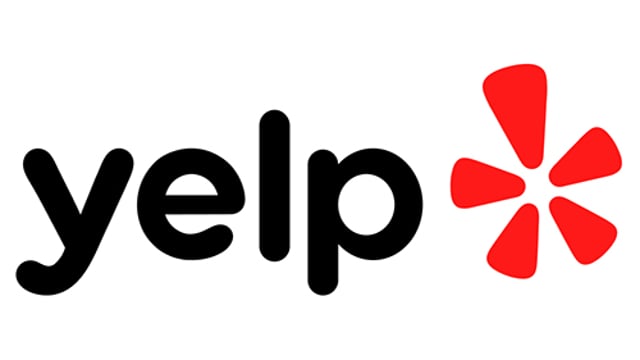Josiah: Great Hospitality is all about catering to your guests. And in this episode, we do a deep dive in how to do this specifically with your vegan guests, as well as people who are trying to eat a more plant-based diet overall, like myself. Today, we’re learning from Meredith Marin, CEO of Vegan Hospitality. And even if you think this isn’t applicable to you and your hospitality business, I encourage you to keep listening because we actually start out the conversation with me playing a bit of devil’s advocate. I ask a question about why does all this matter? I think you’ll find Meredith’s response really interesting and, I’ll guess, applicable to your business as well. From there we get into all the details of how to cater to vegan guests well, so let’s get started.
Josiah: I wonder if we could actually start our conversation at a bit of a strange place. And maybe that is for people who don’t care about veganism. They don’t care about maybe some of the elements that people who have become vegans, you know, some of the driving factors of them switching. They’re saying, I’m running a hotel, I’m running a restaurant. I don’t know. I hear about this vegan thing. You know, why should I care? What should we tell them?
Meredith: Well, I think it’s a very interesting question because I’m not in the business of convincing anyone to care about something they feel they don’t care about. But what I would respond is, Do you care about your guests in general? And I think every hospitality professional would say yes immediately. And when we think about that, we have to think about all of our guests. So all of our guests experience. Now we may think of vegan guests as some special unicorn type of guest, but the truth is most vegan guests were once the traditional guest and something in their lives prompted them to make a lifestyle shift, whether that’s a hundred percent vegan because of animal ethics or because They’ve had to make shifts in their diet to be more plant forward because of health concerns. They probably were eating the ribs at your hotel or restaurant a couple years back. And when they return, they remember the quality of experience they had in the past and they want to replicate that experience. So that’s number one. And number two is because we really want to understand the entire party that’s coming, especially if you have a hotel or a restaurant, we’re booking an entire table. So if we are leaving out one or more of those guests at the table, we’re leaving out the whole table. We’re essentially turning away customers. And something that many hotels and restaurants don’t realize is something called the veto vote, which is this phenomenon that the vegan in the group chooses where the guest, the whole guest party eats. So if you have one vegan in a group of 10 family members or a whole party of friends that are going to a bachelorette party, they’re going to look to that vegan person who is the most, we can call them a difficult eater, but they’re the most difficult to serve in the way the current landscape is set up. And so they’re going to have first priority on where that group eats. So when we’re looking at sales data around how well are your plant-based meals selling, we can’t just look at that maybe 10 meals, 10 plant-based meals a day that were sold. We have to look at who else was at that table. And it’s possible that entire party wouldn’t have shown up if you didn’t have that one plant-based option. That’s fascinating.
Josiah: You don’t want to get hit with the veto vote there. I think you mentioned, some may view it as a difficult preference to cater to, but everybody arrives at this from different perspectives. You actually had a really good conversation with Russell, I’ll link in the show notes, because Not only were you sharing your story, but he was sharing his story from, you know, moving to become a vegetarian and then a vegan, and it was driven by health concerns. And I feel like I encounter so many that that is their story. I’m personally currently more of a flexitarian, but I’m eating more and more plant-based. My wife eats only plant-based food and she’s, you know, so vast majority of my food. And then even when we go out, I kind of find I’m looking for restaurants that offer this. And so it’s interesting, if you’re just looking at market data and you’re just looking at people who are strictly vegan, maybe, and what I’m hearing from you, and I’m just thinking, you might be actually missing how big of an opportunity this is.
Meredith: Absolutely. I mean, we have a hotel certification program that we’ve now launched. In that certification program, we do a vegan guest services training. And part of that is helping hotel staff understand their vegan guests. When we talk about vegan guests, we’re talking about people who prefer to order these plant-based options. That includes someone in a profile like yourself who might be going out with a person who eats only plant-based food and would prefer to choose a plant-based option if it was enticing. And that goes for people who identify as maybe plant-based or vegetarian, that they would actually choose the vegan option. if it was available and if it was just as good of a quality as the other options. So oftentimes, we’re also again looking at sales data, but we’re comparing a plate of grilled vegetables to a really well-thought-out seafood dish, right? So it’s not really comparable and it’s possible that the guest actually would have loved to choose a thoughtful plant-based dish but didn’t because it wasn’t available.
Josiah: What’s interesting? I’m curious if the profit margins might be better there in some cases. I just came back from a week of travel and I was eating only veg burgers and they were really, really well done. So it wasn’t like someone just put a frozen patty in the microwave. There’s a lot of thought and creativity. But I’m curious in some cases if you see this where there’s actually a reduction of your ingredients, a cost of ingredients, and there’s maybe some more profit margins in some cases. Do you see that?
Meredith: There absolutely can be. I think this is actually quite a long conversation we can have because sometimes chefs will tell me that vegan options are very expensive. And the two reasons they tell me that are, number one, because they’re not selling well, so they’re wasting the food. And of course, food waste is a very expensive problem to have. And number two, because they’re using very expensive specialty ingredients like vegan cheeses or vegan meat products, and they’re using, you know, large portion sizes of them essentially to replace the meat that they had on the original dish rather than get creative with it and utilize it as a component or a flavoring for the rest of the whole food plant-based dish. So, if you are using whole foods, for example, beans and legumes, fresh vegetables, especially local produce, you are more likely to have higher profit margins and when I work with my clients we talk about you know, what kind of profit margins are you looking for? Sometimes they just have a standard profit margin for all their dishes. And so we actually have to try to increase the price of the plant-based dishes, because when you put it through the software and it calculates, it’s like, ooh, that lentil bolognese is like $3. I’m like, you can’t sell a dish for that cheap because people are going to think it’s not a satisfying dish. So sometimes we have to raise the profit margins on the vegan dishes because we need to showcase that it is a quality option. So I think there’s so much nuance to the conversation because I have seen restaurants lose money. by adding vegan options to their menus because they’re not doing it right. They’re not selling well, but if you do it correctly, which for me really involves market research first and foremost, is assessing your market, finding out who your vegan guests are and what they’re looking for in your specific market, then it’s really hard to fail with it.
Josiah: I want to come back to this, but I just want to underscore something that you mentioned early on when we started talking of the sense of this is providing hospitality. I’ve been thinking about this a lot in different contexts because I was talking with Curtis Crimmins, who runs Roomza, And he had a guest tell him that he has the most Muslim-friendly hotel. And that stood out to me. He catered to all faiths, but it was kind of in the sense that he offers religious texts and other things. And I guess I came away from that conversation thinking, what would it look like to cater to people across different areas of their life? in different ways. And I think that’s fundamentally hospitality. And of course, this obviously applies to food. So even if you are personally not a vegan, if you’re a good hospitality provider, you recognize that many people are, and we want to cater to them. I think, you know, we talked about, you know, why do this from the point of people who might be skeptics. Let’s talk about maybe some of the more common reasons why people are moving to more of a plant-based diet or more of a vegan diet. Maybe things that people have heard before but I think are important to underscore before we move further because they’re important to know.
Meredith: Sure. The number one reason people are moving toward a plant-based diet or a vegan lifestyle is health. So we see that many people are trying to prevent diseases and increase their longevity. And then there is also the flip side of people who have diseases, for example, heart disease and cancer, who are being prescribed a plant-based diet or a plant-rich diet by their doctors. So we see this often, and we see that these are people that also love to eat out. So they don’t want to compromise their vacation or their fun and have a stressful experience or have to eat the only oil-free diet dish, steamed vegetables, They also want to leave feeling satisfied. So, health is a major driving factor for people who are making these shifts. And then we also have the sustainable conscious customer. So oftentimes, it’s a mixture of all these reasons, right? But there are people who are very sustainability-conscious, and those people you see either going fully plant-based or wanting to eat a plant-rich diet for sustainability reasons because they really want to see the planet that we live on be sustained and see our food system thriving. And we can get into a whole podcast about that as well. But there is a lot wrong with our current food system. Animal agriculture plays a big role in the climate emissions that we see in methane and deforestation. We see a lot of issues with dead zones in the ocean related to water runoff, toxic water runoff, and overfishing. So there are people that are really conscious of the sustainability aspects of the vegan diet. And they’re going toward it in that way. And then we have people who care about animal welfare. So people that, to put it simply, don’t believe animals deserve to die to be on our plates. That if we can live a life and enjoy our food and survive and thrive without harming animals, then why would we choose to do that? So there are so many reasons. There’s other people, for example, my children. I have two children. They didn’t choose this way of life. However, they need to go out to eat and they don’t, well, actually, I was gonna say they don’t wanna be eating french fries at every meal, but to be honest, my kids probably would love to eat french fries at every meal and that’s what they do when we go out, if it’s not a vegan-friendly place. But we do need to also think about the next generation, who many of them are being raised in this more, we could call it more ethical, conscious way of eating, because specifically about health sustainability and animal welfare so we have so many different segments to think about and that’s why when I’m working with clients I really like to look at the vegan guest strategy and see how it plays into the overall guest strategy as well as seeing how the company’s existing values fit in with the way that they treat their vegan guests because so many companies already have values that relate to how they would like to treat vegan guests, they’re just not acting on them. Like values of inclusivity, values of embracing change, values of sustainability goals, people first. These are things that very much relate to good solid vegan programming or plant forward programming. So when I’m working with clients, it’s really about helping them align their services with the values that they already have, not necessarily changing things for their business.
Josiah: Well, I feel like you’re just setting me up here. You can’t mention a vegan guest strategy without me wanting to know more about it. And again, just coming off of this trip, I was in Michigan and I love Michigan, but so many of the restaurants we hit, there’s like a burger or chicken or fish and maybe sometimes a sad iceberg salad. And there just was not options there. And I think I would love to, if you could, give our listeners a little bit of a preview of The vegan guest strategy, where do you start? You’re saying, hey, I bought in, I need to do something here. Where do you begin?
Meredith: Yeah, absolutely. Well, to put it simply, a vegan guest strategy would include considering how you could treat your vegan guests similarly or as close as possible to the experience that your traditional guests will have at your hotel, restaurant, resort, catering company. event, retreat center. So we want to look at the touch points as we map out the guest journey. We want to look at the touch points of the vegan guest and we want to think about it from every step of the way from when they look at your website are they finding a menu that they can look at and say I can definitely get something to eat? When they’re making a phone call to place a reservation and they’re asking questions is the person on the other end of the line able to answer those questions with confidence? And when they go to check in and they’re asking hey can you can you serve us? Are we going to be able to eat on site at the hotel that your front desk agent isn’t sending them elsewhere and saying well you can go out to eat at these places and We don’t need your money at our hotel, right? Go out and eat at these places. So we want to start there looking at mapping the guest journey and looking at the touch points. And for a vegan guest, it could go as far as what is the bedding made out of? Are we looking at down comforters are looking at feather pillows I mean we can get into details of like the paint on the wall but we don’t we don’t have to go there today but there’s just a lot of information around what a vegan guest ideally would expect but at minimum we have this criteria and You know, what I’m trying to do through vegan hospitality is really set some industry standards and really minimum industry standards for what it means to serve vegan guests successfully, because there really isn’t an industry standard right now. And it’s very hard for vegan guests to trust where they’re going to stay or going to eat, because you might call on the phone and get an answer like, our chef could make anything vegan. Just come and talk to your server. We’ll figure it out. which would never be an okay experience for the traditional guest. Or sure, we have food at our buffet, you know, you’ll just come and find it. So our minimum standards would be that you would need to provide an option, a plant-based option for each meal of the average vegan guest stay. So let’s say your average guest stay is five days at your hotel. So you’d want to make sure you have a plant-based option for breakfast. So five options for breakfast, five for lunch, five for dinner, and that the dessert options are mirroring the quality of what you have for the traditional guests. And then in addition to that, you’d want to make sure you have plant-based milk options wherever you’re serving coffee or tea. And you’d also want to make sure your staff is trained in vegan guest services. And that’s something my company provides. And if you want to go a step further, you can also think through a vegan guest strategy, which is also something we work with our partners on. But that allows you to think about where you’ve how far you’ve come. Like we help you reflect on the past five years of the experiences of your vegan, maybe vegetarian guests. If you don’t really have vegan guests yet to think about what have you changed so far, maybe you You didn’t have a Beyond or Impossible burger five years ago, but now you do. There are steps people have taken already. And then really thinking through where do you want to go? Where do you want to be in five years? Do you want your company to be a leader in this? I think a lot of companies would say yes to that. But then what steps are you actually taking to develop your leadership skills in this sector? Are you partnering with an organization like mine or a different organization where you can really get the expertise of the vegan experts? Or are you training your chefs and giving them professional development opportunities in plant-based culinary? Are you really looking at all the touch points from housekeeping, vegan-friendly shampoos and beyond? So in order to lead in this sector, you truly need to invest in it. And beyond that, even if you don’t want to lead, what is the minimum standard that you’re willing to have and what steps are you taking to get there?
Josiah: Well, I appreciate you walking through every element of the guest journey, because that’s really how you become effective here, right? You talk about those very first touch points, or early in our conversation, you talk about the veto vote. A lot of these decisions are made way, way before someone’s stepping foot on property, right? It’s going to be this restaurant or this place, this hotel or that one. And so you think about all your digital touch points, you think about how you communicate what you offer. This needs to be at the very early stages. It’s a lot of work, but it’s also what makes hospitality fun. And I appreciate you kind of, you know, go meal by meal. And it’s a personal pet peeve where plant-based milks are like this upcharge. If I go to the grocery store, they’re all the same price. It’s like, why am I paying more for? I think that just kind of grates on you. Even though I’m not a full vegan, I feel like that kind of grates on you. It’s like, there’s no economic reason for this, but you’re just, you’re kind of viewing it as a luxury good, as opposed to kind of a way of living. Sure.
Meredith: I think one reason, you know, we see upcharges is because of food waste, because they’re calculating in some sort of necessary food waste. Oh, we have oat milk, but no one’s going to ask for it. Well, what if you just switched all your default milk to oat milk, and then you made people ask for cow’s milk? You know, how would that shift? Number one, your CO2 emissions created by your food programming. And number two, your perception of your business and what people saw you as. So really thinking about making those kind of shifts as well. What kind of default shifts? Can we look at our breakfast buffets and move the plant-based options to the front of the line? That would change what customer behavior is without having to take anything away from your programming. So those are also the kind of shifts that you can do.
Josiah: I wonder on a tactical level, I’ve heard you talk before about a project you did where you actually changed the color of the menus. Why was that done for people ordering off a plant-based menu?
Meredith: Well, there’s a lot of menu engineering strategies that we can talk about. There’s colors, there’s labeling. One of the first things that I look at when I’m looking at an analysis of a potential client is, nine times out of 10, it’s not. If I just Google random menu for any restaurant, even top 10 restaurants in the US, I will find an inaccurately labeled menu. And that is a huge problem. So when I’m looking at menus, I’m looking at accurate labels. I’m looking at the color schemes. Of course, we can look at color psychology and think about blue being more economical. We can look at You know, green being more health focused, red is more signifying tastiness. We want to look at the labeling of the leaves and see, you know, we also often see the vegan option labeled with a leaf and maybe the vegetarian option has a very similar label and that can be really confusing. When we think about menu accessibility, we need to make sure that labels are readable so that they’re large enough. If we have two different shades of green, one for vegan and vegetarian, is that truly accessible to people? Not everybody can see those shades. Sometimes you can easily miss them. And we’re not just talking about people who are choosing a vegan option because they want to, but many people have allergies as well. And that’s another segment we haven’t really spoken about yet. But when I’m doing my work, I’m also always making sure that our menus are allergy friendly and that any changes we make that are going to benefit vegan guests are also streamlined to help guests with allergies because they’re also looking for those labels, the same kind of labels that a vegan guest would look for, the allergic customer is looking for those labels as well. We want to look for accurate labels and also a big pet peeve of mine is seeing dishes named with the word vegan in the dish as if that’s giving us information about the way the dish is going to taste. So you see vegan burger, vegan lasagna. I saw a dish called vegan tofu and you see the word vegan as if it’s some descriptor when we know from research that using the word vegan as a descriptor actually decreases the sales. And so when When companies tell me, well, people don’t really order our vegan options, I say, well, let’s take a look at that. Why might that be? Are you actually doing things to drive them away from placing that order? The word vegan, it tells me what it doesn’t have in it, but it doesn’t tell me anything about what it has in it. So I want to know the key ingredients of the dish when I’m looking at a dish name or a dish description and I want to know the cooking method and the flavors and I want your servers to upsell that dish to me and ask me if I want to pair it with a vegan-friendly wine. So those are the kind of things that if you’re asking yourself, oh, do we have vegan guests or why aren’t our vegan dishes selling? We want to look at the way that you are actually trying to sell these dishes.
Josiah: Yeah, that’s great. And that labeling within the menu is so important, the descriptors, everything, you know, for the reasons that you mentioned. And I think you’ve also talked about the actual outside of the menu maybe being different as well as a way to connect all the threads of everything you’ve described, where even wait staff is able to instantly identify, this is somebody who’s wanting to eat this way, so I’m not going to suggest the catch of the day, right?
Meredith: Sure. I’m a big advocate for separate vegan menus. I know that that is quite controversial in the industry. People don’t like to necessarily have separate menus. I really love separate menus in addition to putting some key plant-based dishes on the traditional menu. But I like separate menus for that very reason. It really minimizes service mistakes. And what it also does is it signifies that you actually have a full vegan program that was thoughtfully designed. Vegan guests love to feel that they are not an afterthought, because they so often are an afterthought. So when you have a special vegan menu, it’s amazing for the vegan guest experience, but also for marketing purposes, because vegans are ready and excited to go on TripAdvisor and talk about how you had a separate vegan menu. And we do the same to signify, for example, a vegan-friendly bread basket. So you would want to have maybe a red napkin on your traditional bread basket, green napkin on your vegan bread basket because service mistakes for a vegan guest or especially an allergic guest are very serious and it can create a negative spiral. Of course they’re not going to come back and they’re also going to potentially put a negative review up online, which, you know, I like to think of four-star reviews as negative reviews. I shoot for my clients to get five-star reviews because I’ve worked with many five-star restaurants and I see when they get a four-star review from a vegan guest, it turns them off from wanting to serve vegans in the future. So I ask them, well, why did they give you a four-star review? What were they complaining about? Oh, well, you know, we didn’t have vegan dessert. Okay, well, did you deserve the five-star review? Let’s talk through that. We put in all this effort to have a vegan entree and we made it special for them and our chef went out of his way, you know, and I understand that. I think it’s very frustrating sometimes for chefs to feel like they truly are going out of their way. And a lot of the burden falls on these executive chefs when the whole company isn’t prepared to serve vegan guests with a strategy. So a vegan guest walks in, what happens? This is one of the first questions I ask when I’m having a session with a new client. Walk me through what happens when a vegan guest comes into your place. Well, the chef drops everything they’re doing. goes and tries to figure out what they can make with the scraps in the kitchen and figure something out special and hopes that the guest is liking it and is grateful for what they’ve served. And sometimes that works out really well. Guest is grateful and sometimes the guest didn’t want that because they would love to have a choice from the menu and maybe they didn’t have the ingredients for the dessert or the server wasn’t aware of which wines were vegan friendly. So it truly benefits everyone, not just the guest, but of course the employees when the company is prepared to serve these guests.
Josiah: That’s great. Now, earlier you mentioned the importance of communicating what you offer across every touchpoint. There’s going to be some variance in how different companies do that, right? They might kind of decide to do this or that. And that makes it challenging for someone who is vegan to navigate what’s just marketing talk. Have they communicated all they have or don’t have? which sort of creates the need for certification, some kind of standards across the industry. I wonder if you could tell a little bit more, our listeners, a bit more about what you’re doing in this area and kind of why that’s important.
Meredith: Sure. So we’ve recently launched an industry premier certification. It’s the Vegan Hospitality and Tourism Certification. And it’s specifically for hotels and other travel accommodations like retreat centers or cruise ships or places that are accommodating vegan guests more than just for a meal. And we created this because we really wanted to set the standard, but also support companies that are already doing a great job and help them actually become leaders in this sector. So like I shared before, it’s really useful for there to be some companies that are going to set leadership standards so that other companies know what to work toward. So included in the certificate, of course, companies have to apply for it. And when they apply, they get a free audit. So we’re going to take a look at your menus and understand if your menus match the length of your average guest stay. We’re going to understand what you’re offering, the quality of your service, and if you’re offering desserts and plant-based milks as well. And then we’re going to communicate with you. If you qualify, we’re going to get you certified. And if you don’t qualify, we’re going to set you up with a consultant that can meet with you for free and really walk you through what steps you can take to get yourself certified. So once a company gets certified, they receive our digitized certificate that is managed by a company called Virtual Badge. Virtual Badge is amazing. We love partnering with them. They manage certificates for many major companies and organizations like the UN, for example, and it’s a third party data secured website. So we are able to provide certifications that are validated where they each have their own code and not just for the hotel itself, but actually for all of the employees that take our vegan guest services training. So once you get your digital certification, you then receive the employee training, which is a 30 minute recording that you can either do live, you can do the live recording for your staff at a meeting, or you can actually just email it out to everyone. We also provide email templates so you can introduce the certification and the training to your employees. And once each employee takes that training, then they’re able to get their own certificate. And because of this partnership, it prompts them to add it to their LinkedIn certificate section, and it prompts them to share on social media. So it’s allowing these employees to also upskill and really be proud that the company that they’re working for has given them this professional development opportunity and the company’s name is also reflected on their own certification for the employees. We’re really, really proud of that aspect of it. And the certification really helps, this training really helps the employees understand they’re vegan guests. And like I said, you know, not just the pure vegan or the ethical vegan, but all the reasons why people might order these kind of foods, what to expect in conversations with these customers and beyond just the food service, we want to, we really go into what’s happening in back of house, how to prevent cross-contamination, looking at ingredients in wines or in processed foods. What are some common things we need to look for? Preservatives, for example, that may not be vegan-friendly. We get into different departments, for example, marketing strategies to attract vegan guests. We look at rooms and we reference the Hilton London Bankside, which has their own vegan suite, and we talk through some examples of things that they’re doing, like having a vegan guest minibar and really the special effort that they’ve taken to make sure that the vegan guest has an experience that is equivalent to the traditional guest. I mean, they use Pinotex leather, which is a leather made out of pineapples for the little key booklet for the cover of the bed, for their chairs, like really going above and beyond. So we talk through all the things that are necessary for your staff to know about. And then we also pair you with a consultant. So I manage this company, Vegan Hospitality, and I’ve trained over 100 consultants in 25 plus countries over the past five years to do this work, to help the hospitality industry transition into the future of food, what we believe is the future of food, which is plant-forward and vegan-friendly. And I pair you with a consultant in your region. So if we have someone in your region, then you are able to meet with them in person. And if not, we do, of course, a virtual meeting where we walk you through this vegan guest strategy workbook that we’ve created. It’s a 32-page workbook that takes you through an understanding of where you’ve been, where you want to go with your vegan guest strategy, and also helps you start working toward other indicators, for example, around food waste prevention and minimization, other sustainability goals. Looking at animal welfare, for example, do you have birds in cages on your site, right? That’s something that perhaps in the future of animal welfare you may not want to have. We’re looking at other activities you might recommend outside of your resort. Are you recommending zoos that maybe don’t have the best reputation? So we want to help you recommend sanctuaries instead. We have one certified boutique hotel that is actually partnering with animal dog and cat rescue organizations, and actually encourages and helps facilitate their guests with doing volunteerism when they come to visit. This is on Aruba. This is the Boardwalk Boutique Hotel. So we really like to walk these hospitality managers through these different ideas that they can do to start even improving their service for vegan guests. And what they’re going to find is that this is going to improve the quality of their guest services overall.
Josiah: That’s great. For our listeners, I’ll include a link in the show notes where people can learn more about that. If folks are just listening, where would you point them to learn more about your certification program?
Meredith: You can go to veganhospitality.com/certified. I also want everyone to know that I love having conversations on LinkedIn and am really active there. So, if you have any questions, you can really just reach out to me directly at Meredith Marine on LinkedIn. And if you’re not quite sure if your property would be qualified, I’m happy to walk you through that personally.









